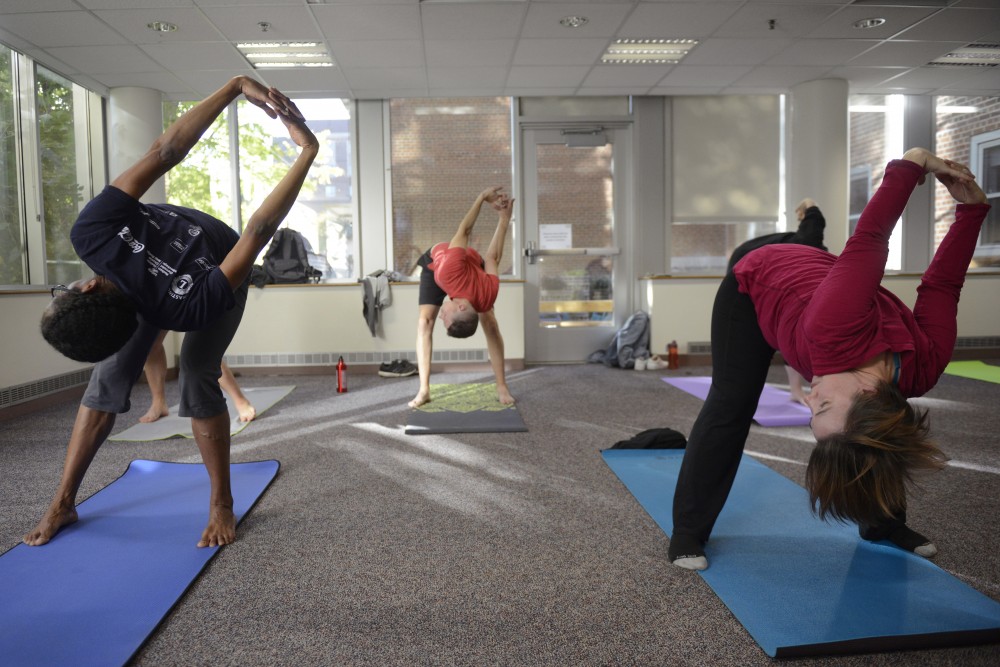Yoga may improve body image, especially among those who have low body satisfaction levels, according to a new University of Minnesota study.
Yoga’s focus on mind-body connections, as well as yoga classes’ welcoming environments, could lead to more positive self-image, the study says.
The study relies on research conducted by the School of Public Health’s ongoing, 15-year Project EAT, which studies the nutrition, physical activity and weight status of young people. The results show 16 percent of the people participated in at least 30 minutes of yoga per week in the previous year.
Those who practiced yoga had better body satisfaction levels than those who didn’t, and yoga seemed most beneficial for those who had the lowest levels of body satisfaction, said study lead and University professor Dianne Neumark-Sztainer.
Body dissatisfaction can negatively impact quality of life and predict low self-esteem, depression and eating disorders, according to the study.
Yoga classes are welcoming to people of all fitness levels and body types, Neumark-Sztainer said. The combination of getting in touch with the body, connecting with oneself in a positive way and engaging in gentle movement may be why many find yoga beneficial, she said.
“I think it’s important to find a teacher and a practice in an environment that helps you feel better about yourself,” she said.
Neumark-Sztainer started to believe in yoga’s potential body image benefits after opening her own yoga practice. As a result, she decided to include questions about yoga on the most recent Project EAT survey.
Long-term research about the benefits of yoga is relatively new in its field, Neumark-Sztainer said.
As yoga gains popularity in the U.S., it could be a popular and healthy way to improve body satisfaction among the public, according to the study.
“I always feel refreshed coming out of a class and I like being in tune with my body,” said freshman Anne Kunkel after a yoga class at the University Recreation and Wellness Center Wednesday night.
The rec center holds more than 20 yoga classes each week as part of its group fitness schedule. These classes often encourage positive body image among students, said yoga instructor and nursing junior Marin Fischer.
“I find people often completely change the way they think about themselves when they leave my class, especially among the regulars,” she said.
Even though this study seems to have demonstrated yoga’s positive effects on body image, additional research will be necessary to definitively prove and understand yoga’s relationship with self-image, Neumark-Sztainer said.








